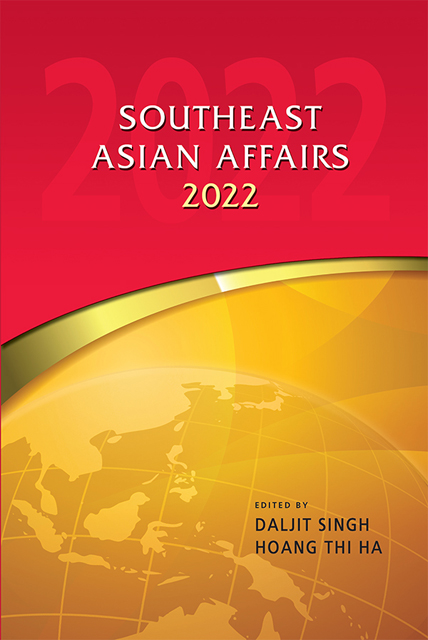Indonesia in 2021: In the Eye of the Storm
Published online by Cambridge University Press: 01 September 2023
Summary
Overview
Jokowi’s initial response to the COVID-19 pandemic was driven by a firm resolve to avoid lockdowns in the hope that Indonesia could evade a large wave of infections until vaccines became available. The arrival of the highly transmissible Delta variant in 2021 shattered this optimism. According to official estimates, 144,000 people in Indonesia have died from COVID-19. More than half of these deaths occurred during the intense wave of infections that engulfed the country between June and September 2021. The Delta wave caused a health system collapse and widespread economic disruptions. It also damaged President Jokowi’s personal credibility, as public trust in his ability to manage the crisis sank to the lowest levels since the pandemic began.
Amid the raging health crisis, the Indonesian Parliament (the Dewan Perwakilan Rakyat, or DPR) took up two legislative priorities. The 2021 Law on Special Autonomy (Otsus) for Papua was passed in July despite sustained protests by Papuans and a challenge in the Constitutional Court. Touted by the government as means for accelerating development, the new law effectively ends Papua’s ability to govern itself by transferring key fiscal and political powers back to Jakarta. In contrast to the speedy passage of the Otsus law, the sexual violence bill that has languished in the DPR since 2016 was shelved once again. Lawmakers accommodated objections by Muslim organizations to the consent-based definition of sexual violence in the bill and dropped key provisions for victims’ rights. But even this watered-down version could not be passed when Islamist parties insisted on revising the law to ban sex outside of marriage, including LGBTQ relations.
Two regional developments tested Indonesia’s reliance on ASEAN for managing its foreign policy objectives. Following the coup in Myanmar, Indonesia’s foreign minister skilfully navigated a myriad of interests to prevent recognition of Myanmar’s military government, but the bloc’s five-point consensus had little success in curbing the regime’s atrocities against civilians. Australia’s acquisition of nuclear-powered submarines through the AUKUS deal upset Indonesia’s longstanding efforts to prevent intensification of great power rivalry in Southeast Asia. Support for the deal from the Philippines and Singapore also exposed deep divisions within ASEAN, once again raising questions about ASEAN’s ability to serve as a buffer against geopolitical competition in the region.
- Type
- Chapter
- Information
- Southeast Asian Affairs 2022 , pp. 141 - 161Publisher: ISEAS–Yusof Ishak InstituteFirst published in: 2023

